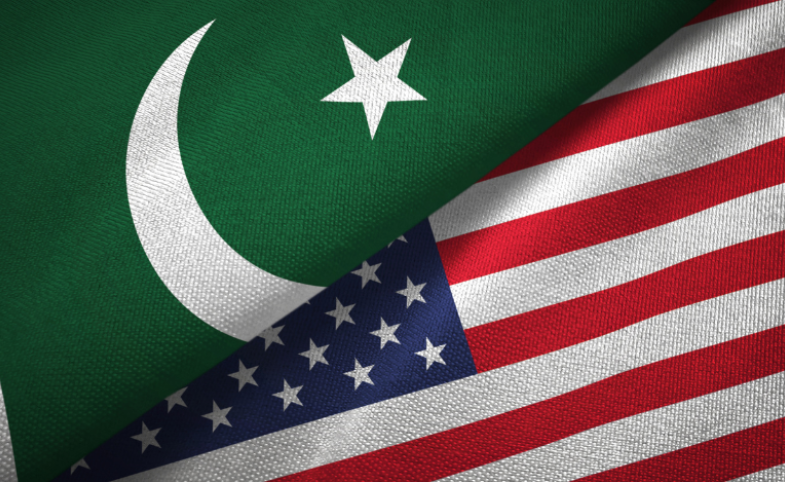It would seem impossible for the Taliban to get good publicity in Western media, but the unthinkable nearly happened on December 16, 2014. How? The Taliban tricked the press by using a powerful communications technique: the...
KEEP READINGThe CPD Blog is intended to stimulate dialog among scholars and practitioners from around the world in the public diplomacy sphere. The opinions represented here are the authors' own and do not necessarily reflect CPD's views. For blogger guidelines, click here.

Why Is Pakistan Important for U.S. Public Diplomacy?
In the 2023 Comprehensive Annual Report on Public Diplomacy and Broadcasting by the Department of State, which outlined U.S. global engagements, Pakistan stood out as the largest recipient of U.S. public diplomacy funds. With a substantial investment of $27.6 million in 2022 alone, according to the report, the U.S. has recognized Pakistan as an important partner in its global outreach efforts. This substantial financial commitment not only made Pakistan one of the top recipients of U.S. public diplomacy grants but also demonstrates Pakistan’s significance in U.S. efforts to shape the narrative in the region.
Despite recurrent challenges in the 75-year bilateral relationship between the U.S. and Pakistan, public diplomacy engagement has remained a cornerstone of U.S. involvement in the region. The relationship dates back to the Cold War, when Pakistan became a recipient of significant financial and military aid as part of a broader strategy to contain Soviet influence. Subsequently, Pakistan's strategic importance soared as it became a frontline state during the Soviet invasion of Afghanistan in 1979 and played a crucial role in America’s Global War on Terror, launched in 2001. In retrospect, U.S. public diplomacy efforts in Pakistan have become a delicate balancing act, intricately tied to its strategic interests in the South Asian region.
Through the years, U.S. public diplomacy efforts have sought to build enduring partnerships between the American and Pakistani people, as well as share America’s core values. These campaigns reflect medium and long-term strategies that revolve around educational exchanges, developing infrastructure and building networks. The widespread engagements are executed through strategic communication campaigns that leverage mass media (television and radio) and digital platforms (Facebook, X, YouTube, etc.). A prime example of these campaigns is the influential role played by the Voice of America in disseminating core American values such as human rights, democracy, rule of law, minority rights, women's empowerment and counter-extremism narratives. This approach seeks to bridge cultural gaps and foster a deeper understanding between the two nations.
Furthermore, U.S. initiatives extend beyond rhetoric to actively contribute to improving social and physical infrastructure in Pakistan. Programs like 'Roshan Pakistan,' initiated by the USAID, have successfully rehabilitated major dams (Tarbela, Gomal Zam), contributing to energy generation in the Khyber Pakhtunkhwa Province. The impactful advertisement campaign associated with this initiative, symbolized by the popular song “Roshan Hai Zameen Roshan Aasman,” has resonated with the Pakistani population, becoming a household tune. Likewise, educational programs such as the USEF Fulbright program (Master’s, Doctoral and Post-Doctoral) and Global-UGRAD Pakistan have facilitated academic exchanges, nurturing a generation of leaders with a deep understanding of both nations. Thousands of Pakistani students have studied in American universities since 1951 under USEFP programs. U.S. assistance in the recurring floods, donation of 80 million vaccines during the COVID-19 pandemic, and financial and technical assistance for mitigating the effects of climate change are a few of the many projects demonstrating U.S. support for social and physical infrastructure in Pakistan.
Despite recurrent challenges in the 75-year bilateral relationship between the U.S. and Pakistan, public diplomacy engagement has remained a cornerstone of U.S. involvement in the region.
Advocacy through public diplomacy has not only been instrumental during times of natural disasters, such as the 2005 earthquake in Pakistan but has also played a pivotal role in shaping perceptions during periods of tumultuous relations. The U.S. pledged $510 million for reconstruction and rehabilitation for fiscal years 2006-2009. The massive assistance boosted U.S. public perception to an all-time high among the Pakistani people. U.S. public diplomacy in Pakistan became viewed as a smart power resource, balancing its hard power. All the while, public opinion of the U.S. presence in Afghanistan remained critical. Furthermore, U.S. drone strikes targeting terrorists in the Pakistani tribal regions, the Osama Bin Laden operation, and NATO skirmishes with Pakistan forces in 2011 adversely affected perceptions of the U.S. among the Pakistani people, underscoring the complexity of managing public diplomacy amid geopolitical tensions.
Recognizing Pakistan as a country imperative to U.S. national security interests, the 2018 Comprehensive Annual Report on Public Diplomacy and Broadcasting reinforced the multifaceted approach of U.S. public diplomacy efforts, addressing both traditional and non-traditional security concerns. In the post-US withdrawal from Afghanistan, engaging with key strategic audiences in Pakistan has become even more crucial, particularly in fostering a more inclusive regime in Taliban-dominated Afghanistan. While direct leverage on the Taliban may be limited, engaging with civil society and Afghan refugees in Pakistan becomes pivotal in conveying U.S. priorities. Additionally, the prevailing threat of terrorism in Pakistan necessitates U.S. support for counter-radicalization initiatives through public diplomacy initiatives. Lastly, the impact of climate change in South Asia, particularly in Pakistan, requires more U.S. involvement in climate resilience initiatives and capacity building through public diplomacy in the coming years.
Visit CPD's Online Library
Explore CPD's vast online database featuring the latest books, articles, speeches and information on international organizations dedicated to public diplomacy.
POPULAR ARTICLES
-
January 29
-
January 20
-
January 28
-
January 2
-
January 8
Join the Conversation
Interested in contributing to the CPD Blog? We welcome your posts. Read our guidelines and find out how you can submit blogs and photo essays >.













